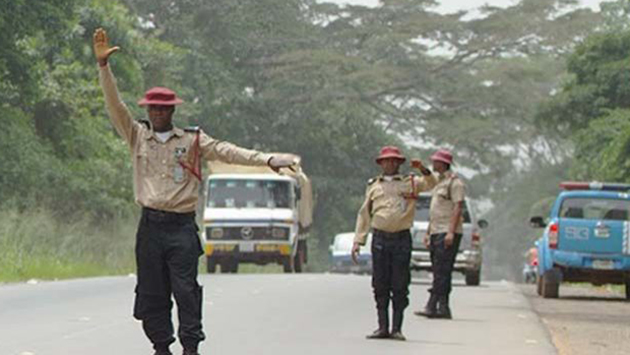When the Enforcers Break the Rules: Nigeria’s Security Agencies and Their Disregard for Traffic Laws
In every society governed by law and order, those entrusted with enforcing the law are expected to lead by example. Their conduct, both on and off duty, should reflect the principles they are sworn to uphold. Unfortunately, in Nigeria, a glaring contradiction persists on our roads: the very security agencies responsible for enforcing laws often violate traffic regulations with impunity.
From police convoys running red lights to military personnel intimidating road users, to DSS and paramilitary drivers moving against traffic or ignoring pedestrian rights, the situation has become not only dangerous but disgraceful. The message it sends to ordinary citizens is both demoralising and deeply ironic: do as we say, not as we do.
On a typical day in Abuja, Lagos, Port Harcourt or even in state capitals like Kano and Enugu, it’s not uncommon to see police patrol vans driving recklessly, without regard for speed limits, one-way signs, traffic lights, or lane discipline. Sirens blare not during emergencies but to clear traffic for senior officers, birthday parties, or even trips to pick up dry cleaning.
Military convoys have become synonymous with fear and brute force on our roads. Vehicles are forced to halt abruptly or dangerously veer off just to make way for men in uniform. Heaven forbid a commercial driver doesn’t comply swiftly; the consequence may be a slap, deflated tyres, or worse.
The Department of State Services (DSS), Federal Road Safety Corps (FRSC), Nigeria Security and Civil Defence Corps (NSCDC), and even agencies like the Economic and Financial Crimes Commission (EFCC) have all had their share of personnel who disregard basic traffic rules. The hypocrisy is stunning: how can those who prosecute offenders be perpetrators of the same infractions?
This consistent disregard for traffic regulations by security personnel contributes to the broader erosion of trust between citizens and the state. When ordinary Nigerians witness such brazen impunity, it sends a clear message: the law is not equal for all.
What incentive does a commercial driver have to obey traffic lights when he watches a police officer in a Hilux van blatantly run a red light? Why should a young Nigerian on a motorcycle respect road signs when he sees an army truck drive against traffic without consequence?
Public trust is not just built through national security operations or press releases — it is built in everyday interactions: how police officers treat civilians at checkpoints, how soldiers behave on public roads, and how security operatives respect (or disrespect) the laws they enforce.
Beyond perception, the reckless behaviour of security agents on the road is a real danger to life and property. Numerous fatal accidents have occurred due to speeding convoys, careless overtaking, and unauthorised use of sirens.
In 2023, a police convoy in Lagos reportedly caused a collision that left several passengers injured. Similar incidents have been recorded across the country involving other uniformed agencies. Yet, accountability is rare. Internal disciplinary measures are either invisible or non-existent.
What lies at the root of this behaviour is a deeply ingrained culture of entitlement. For decades, uniforms have been wrongly equated with superiority; not service. Instead of humility and discipline, many personnel act with arrogance and expect unquestioned compliance from the public, even in the face of obvious misconduct.
This mindset is not only dangerous for civilian safety; it undermines the very ethos of professionalism and integrity that security agencies claim to uphold. This culture of indiscipline is not only a failure of individual officers; it is a failure of leadership. Commanding officers, unit heads, and agency directors must take responsibility. If junior officers are allowed to act with impunity, it means their superiors condone or at least tolerate such behaviour.
Training academies must place a premium on civic conduct and accountability. Obeying traffic rules should not be viewed as optional or beneath the uniform. The idea that “rank” exempts one from following the law is toxic and unprofessional.
Equally important is inter-agency coordination. Rivalry and lack of communication among security agencies often result in multiple units acting independently and chaotically on the roads. There must be a standard code of conduct that governs how official vehicles behave in public spaces, with consequences for violations.
The first step in addressing this is through internal reform. Security agencies must instill a culture of accountability among their personnel, especially regarding public conduct. Road discipline should be part of performance assessments. Officers who violate traffic rules must face real consequences (demotions, suspensions, or fines).
The second step is public accountability. Citizens should be empowered and protected when reporting reckless or abusive behaviour. With today’s technology, videos of misconduct circulate widely. Instead of denying or threatening those who expose violations, agencies should investigate and take corrective action.
Third, the Federal Government must lead by example. If ministers, governors, and top officers continue to use convoys recklessly, the message of reform will never reach the lower ranks. Leadership must embody the discipline they seek to enforce.
Lastly, the Federal Road Safety Corps must stop turning a blind eye when violators wear uniforms. No one should be above the law, not even those in law enforcement. Nigeria cannot achieve law and order on its roads or in its society if law enforcers continue to operate as lawbreakers. The culture of impunity must end, starting with the conduct of our security agencies.
Respect for traffic laws is not a trivial matter. It reflects respect for human life, for institutions, and for the very rule of law. Until our security personnel stop treating the roads like their private playgrounds and begin leading by example, our dreams of a disciplined and lawful society will remain exactly that — dreams. It is time to call out the enforcers who break the law and demand that they rise to the standard they expect of others.


